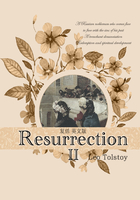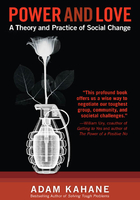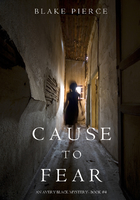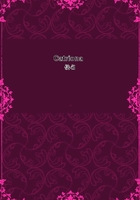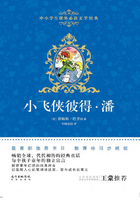In the beginning of the year 1775 The Ninth was ordered to Dublin and Major-General Viscount Ligonier, the Colonel of the Regiment, arrived from England to inspect and take the command of it. His Lordship, who had fought at the battle of Minden, was generous, affable, and greatly beloved by the men. A regiment commanded by a peer can in general congratulate itself on this score, because as his coronet has elevated him above the society of his officers he can afford to unbend towards the rank and file to a degree that commoners would not dare-for fear of abating something of their dignity. Moreover, a peer can often win for his regiment privileges and advantages from the civil government that would be refused to a person of less consequence. It was said that, but for His Lordship's interest at the Castle, another regiment would have been given the Dublin duty, which was the most popular in Ireland.
Lord Ligonier's eye soon fastened upon Private Harlowe and myself as persons of superior education, fit for promotion as corporals; and the Sergeant-Major of the Regiment, under whose immediate command the non-commissioned officers came, and who was a complete sergeant, a good scholar, and a sensible, agreeable man, spoke up for us to His Lordship. There was increasing talk of our being sent across the Atlantic, and His Lordship held that a scattered sort of fighting would be likely to prevail in the woody and intricate districts in which America abounds. It was therefore to the common advantage that non-commissioned officers should be able to send intelligible messages in writing to their company officers. Harlowe and I were among the non-commissioned officers chosen to be instructed in the novel light infantry man?uvres, lately introduced into the Army by General Sir William Howe and strongly approved by His Majesty the King. These man?uvres were intended for use in broken country, the set hitherto employed having been designed rather for the open battlefields of Germany and the Low Countries. They were six in number and well designed to their purpose, and we of The Ninth were sent to the Thirty-third Regiment, then also quartered in Dublin, to learn them.
I am bound to record here that I felt a certain shame-facedness, on visiting the barracks of The Thirty-third, who were commanded by the young Earl of Cornwallis, to compare their high state of appointment and the steadiness of their discipline with the slovenly and relaxed bearing of most of our own companies. One can always correctly judge a regiment's capacities by the behaviour of its sentries. I have already described how Maguire performed his sentry duty at Waterford, and might well have remarked then that his behaviour was not exceptional. I have seen men go on duty in The Ninth dead drunk and scarcely able to stand. But with The Thirty-third the sentry was always alert and alive in attention; when on duty he was all eye, all ear. Even in the sentry-box, which he never entered unless in a downpour of rain, he was forbidden to keep the palm of his hand carelessly on the muzzle of his loaded firelock; for this was considered as dangerous an attitude as it was awkward. During the two hours that he remained on his post the sentry continued in constant motion, and could not walk less than seven miles in that time. The Thirty-third thus set a standard of soldier-like duty which made me secretly dissatisfied with The Ninth, and which I have never seen equalled since but by a single other regiment which was brigaded with The Thirty-third under the same Lord Cornwallis, in the later campaigns of the American War. I resolved at least to bring the men who were under my immediate command into a state of discipline for which I should have no cause to blush.
On my return to the Regiment I was appointed to take charge of a squad of light infantry, thirty-three in number, for passing on to them the knowledge that I had acquired. I soon learned the accent of authority without which it is impossible to make men jump to their tasks, and Major Bolton was pleased to congratulate me upon the neat agility and grace with which my pupils performed the new man?uvres. My employment did not preclude me from other duties such as guard-duties, and on more than one occasion I was appointed for the important Newgate Guard.
It was our ill luck, however, to be under the nominal charge of a captain, an Irish nobleman, who was noted more for punctilio and the flippancy of his tongue than for the acquisitions becoming his rank. He had not taken the pains to acquaint himself with the new exercises and when he appeared upon parade, usually far gone in liquor, to take over the direction of the squad from me, his orders were always confused and contradictory. I was then placed on the horns of a dilemma-whether to allow the men to be misled and mismanaged, or whether to interpret the Captain's wishes by supplying the correct words of command. In the first case I should be wanting in duty to the Regiment and the King, in the second I should be wanting in respect to my immediately superior officer, and in face of the men too. I chose the second evil and, when twice I had capped an impossible order with the correct one, he turned on me in a rage, threatening me with his cane if I would not pay him the proper respect. He added, with shocking imprecations, coupling the name of the Deity with expressions drawn from the common bawdy-house, that if I did not mind myself he would make a devil of me. I had the sense to reply with the becoming and respectful tone of a non-commissioned officer: 'Very good, your Lordship,' so that his anger abated somewhat. However, the squad, which resented this impious and unofficer-like manner of enforcing subordination, had the spirit to make a butt of the captain. Whenever thereafter he came upon the parade-ground they re-echoed in chorus and in a variety of ridiculous tones: 'I'll make a devil of you, you spawn of Satan.' The other officers, who came to hear of this irregularity and had already rated this young nobleman as more apt for caning his men than for storming half-moons, were not ill-pleased; and before long he found his situation so awkward that he sold his captaincy and left us.
My fellow-corporal, Gentleman Harlowe, always now avoided conversation with me. But in talk with others he used to sneer at me for the increased martiality of my bearing, and himself followed the usual fashion of The Ninth: which was to do well enough to scrape through his duties without disgracing himself or his company, but not well enough to excite admiration among civilian onlookers. 'We are a rough and ready regiment,' the saying was, 'and an old regiment, and we can fight as well as the best.' Upon his appointment to the rank of corporal, Harlowe had this great satisfaction, that his wife was permitted by her father to leave the cottage at Saintfield and enter upon effective rather than merely titular matrimony with him at Dublin.
The jail of Newgate was a small, mean building, and in no degree suited to the respectability of a great city. It stood on the site of ground now known as the Corn Market, a short distance from High Street and contiguous to Thomas Street. It happened once in the range of my duty to have command of a guard there for twenty-four hours beginning on a Friday evening, at the time when a handsome young Papist, a dock labourer, was due for public execution. This was some time towards the end of February 1775. The sympathy of the city was much excited by his fate, for he had 'suffered the misfortune,' as it was vulgarly expressed, to strangle his sweetheart. He had done this as a punishment to her for consorting with one of our drummers.
The guard-house was immediately outside the jail, with a sentry posted before it; and another sentry was posted inside in the entrance-hall. This second man was intended to assist a Mr. Meaghan, who had an apartment there with his wife, and a tap-room next door, being employed in the triple capacity of turnkey, hangman, and ale-house keeper. The criminals were lodged upstairs and only allowed to descend if they could afford to pay for refreshment in Mr. Meaghan's tap-room: and then no more than three at a time. It was a custom of prisoners, then as well as now, to beg from passers-by, by making loud appeals to their pity through the grated upper windows, from which they would let down a bag on a cord to receive alms.
I was passed word by my father, who had heard the noise from a neighbour, that a rescue was planned of the young culprit in my charge. I therefore resolved to omit no precautions against this taking place. As soon as I had relieved the sergeant of the old guard, I desired the turnkey to assist me in searching the prisoners' rooms for weapons or other instruments of escape. This was done, and two small stabbing knives found and confiscated. Next, I made it my personal care that no contraband should be insinuated into the alms-bag, which was most generously filled that night. On my first examining the bag I discovered a small file, which I pocketed; and warned the crowd then that if they had any further donations to make they must use Mr. Meaghan or myself as intermediaries. This announcement excited groans and howls from the dense crowd of Papists who thronged Towns Arch, the entry to Thomas Street; but I assured them with a resolute smile that if they did not remain orderly, I would disperse them with a ball or bayonet. And if this did not content them, I said, their friend the murderer would be refused by me even the money already collected, and thus disabled from 'wetting his throttle, the poor lamb,' as the weeping women termed it. Since I meant precisely what I said, they credited me and subdued themselves.
I then permitted his relatives (whom Mr. and Mrs. Meaghan first searched, according to their sex) to attend his wake in the tap-room. They were eight in number, of whom two were his sisters; but my sentry with a loaded firelock standing at the door was sufficient to overawe them.
The prisoner was now allowed to descend and the stair-door was locked again after him. In short, rescue was impossible with such careful dispositions taken, and the family therefore settled down to merry-making. They had brought in a handsome brass-bound coffin which they placed upon the floor, and set six lighted candles upon it. This ominous furniture served as a board on which to spread a plentiful display of funeral bake-meats. There was punch, wine and spirits, besides beef-steaks, potatoes, cakes, green bacon, and a kettle of Hyson tea; and the murderer, whom they hugged and kissed perpetually, calling him their darling, their jewel, their poor, charming, handsome, disgraced Jimmy, was the heartiest man in the whole hearty assembly. After a time he charitably recollected that his comrades languished upstairs, and sent up two pints of spirits to them, with Mr. Meaghan's permission, and a hamper of potato cakes and butter. This soon set the whole upper story ringing with triumphant song, and the effect upon the crows outside was a happy one. For it assuaged their anger against our men, whom, as comrades of the drummer, they had treated as the accomplices of poor Jimmy's ruin.
A priest, or one who professed to be such, presently came in to confess the murderer. He declared himself insulted when the sentry referred him to Mr. Meaghan to be searched before he was permitted to enter; nevertheless, a horse-pistol was taken from under his frock. He exclaimed in confusion that he had quite forgotten that he carried such a thing, and, rather than aggravate matters, Mr. Meaghan permitted him to enter 'now that his teeth were drawn.' I had seen this priest's sallow face before, but somehow I could not fit it with a priest's cap; and his name, which was given as Father Martin, awoke no memories.
His absolution of the murderer, after confession, was the signal for long faces, tears, and a sad keening of the sort which Shakespeare likens in one of his tragedies to a pack of Irish wolves howling to the moon. Soon every person in the room, barring the priest, was swaying about pitifully, clutching at his own windpipe in horrid anticipation of the choking in store for their relative when he reached his life's goal at Gallow's Green. Father Martin took his leave about midnight, and I closed this penultimate scene by ordering the removal of all the guests but two. For on the eloquent plea of the murderer's uncle, who quoted his own brother's case as a precedent, I suffered Jimmy to remain in the tap-room until dawn with his two nearest of kin, and there to play cards upon the coffin lid. There is a tale that the uncle cracked a joke out of season by trying to cheat him, and that Jimmy nearly became a double murderer; it may be true, but the same has been told of the last hours of many other culprits. At least, he was kept out of mischief by my indulgence, and although the crowd remained outside, chattering, cheering, and wailing all night, no rescue was attempted by them.
When I had returned to the guard-house from the tap-room, after giving permission to Jimmy's relatives to remain with him, as above described, I found Terry Reeves in a state of the very greatest terror. On my asking what ailed him in Heaven's name, he withheld his reply for a little while; but then, drawing me aside, he inquired, 'Are you acquainted with that person?'
'What person?' I asked.
'The pretended priest,' he replied, shivering again.
'No,' said I, 'I do not know him from Adam.'
'He is a great deal older than Adam,' Terry assured me, 'and only one day younger than Almighty God Himself. That man is the Devil, the Father of Lies. Wouldn't I know that wet, black forelock of his anywhere in the whole world? I first met him when he was in the disguise of a student of physic at the Romish Seminary where I was employed in the coach-house. Ill luck follows him about, and a shivering cold wind.'
'I smelt no sulphur, dear Moon-Curser,' I said, joking to keep up his spirits, though my own spirits began to sink because I had noticed the same cold wind. 'A little diabolical sulphur would be welcome to fumigate this fetid place.' But now I felt my own skin creeping on my neck, for I had remembered where that face had appeared to me before-at the cockpit on the evening of my enlistment. Indeed he was the very man, the one with the little grey cock, whose challenge had ruined me. I took Terry with me into the tap-room where we both fortified ourselves with drink. Terry whispered to me: 'He must have come to claim poor Jimmy's soul.'
On Sunday morning it was my unpleasant duty to see the prisoner pinioned and mounted in the criminal cart or 'humbler' for a procession through the city; and almost I may say that no task I had subsequently to perform in the whole course of my service-no, not in any of the six pitched battles, four sieges, and other hazardous events in which I took part-was ever so anxious as this. I knew that I could not count upon the assistance of the city watchmen who were in general infirm and altogether unfit for that dangerous duty which must occasionally devolve on the peace officers and body of the police. To reach Gallow's Green we must defy the threatening rabble who had now rushed up in extraordinary numbers from all the Liberties and suburbs, to fill the whole course of the High Street through which we must pass. Yet I think that what Terry had told me comprised the greater part of my fear.
I was lucky enough to have won the respect of the crowd at Towns Arch by my frank address to them on the previous night and by the praise given me by the mourners at the wake for my politeness and easy bearing. I disposed my little force with circumspection and spirit, first publicly examining my men's arms and putting them through the loading drill in the manner detailed in a previous chapter. I also was attentive to halt the cart for a while in Thomas Street, where the High Sheriffs of the city were awaiting us, while the murderer made an address of thanks to his sympathizers and benefactors. Lest he should call for rescue or revenge in his inebriated state, I sang out to him: 'Courage now, Jimmy, my fine cock! Soon it will be all over, and you'll find yourself in Glory and in the company of the Saints.'
This sentiment pleased the crowd as well as it did Jimmy himself; he was good enough to wish me and the guard all good luck, and to confess that he bore us no ill will. But the passage of High Street was most frightful and at many points there was such a jostling and thrusting and such screams of desperate rage from the populace that I thought I should at any moment be obliged to order a volley. Moreover, I discerned among one knot of men armed with cudgels, inciting them to attack, the wild face of Father Martin: which turned me sick, though in effect the attack was not made. We carried our firelocks at the port ready for instant action; Mr. Meaghan, at whom the curses of Dublin were chiefly directed, marching between me and Terry Reeves.
All ended well. We arrived in safety at Gallow's Green, where the victim uttered his last words in so low a tone that nobody could catch them, and the halter being then fastened around his neck, the cart jerked off with his feet and he was dead within ten minutes.
They made a ballad of it, which was hawked about the streets the next day, to the effect that:
Poor, pretty, little Jimmy
Was hanged, not for stealing,
But for choking of his honey,
O that was his failing!
He drove out from Newgate,
He passed through the city,
His hands were tied behind him
And the ladies wept 'Pity.'
etc.
It was set to an air combining the hilarious and the plaintive in equal measure; while the chorus was nonsensical and comically designed to be sung in a single breath:
Is there e'er a pretty lass, now,
From North Wall or South Wall,
Could entice poor pretty little Jimmy from
the sweet green gallow's tree, killa-ma-lee, killa-
ma-loo, whisky, piskey doodle-doo-
Ranty doodle
di do, ring ding fol, lol, lol!
I give these particulars in some detail, not only for the purpose of exciting surprise at the insecurity of the city in those times, and of waking, by contrast, satisfaction with the present police establishment: but because they are a help to an understanding of the notorious Cunningham affair, in which Gentleman Harlowe was involved when he acted as sergeant of the same guard a few weeks later. Cunningham, a famous highwayman, was confined in Newgate Jail awaiting trial on a capital charge, and it happened that it was I who handed over the guard to Corporal Harlowe. It was my policy never to fail in civility to my former rival, and in this instance I should have thought myself wanting in soldierly duty had I not informed him of all matters affecting the conduct of the guard, which was new to him. I warned him that Cunningham was a very bold fellow and was suspected at this moment of conspiring with his fellow prisoners to break out of jail; and described to him the precautions I had taken on the previous night to forestall any such attempt. He did not answer me offensively, since private soldiers were present and to do so would have occasioned a breach of discipline: however, he was very off-hand in his acknowledgments of my report and plainly intended to pay no attention whatever to it.
That evening Cunningham and a companion obtained a file by means of the alms-bag dangled from the window and contrived to saw the iron bolts of their fetters nearly through. They called down the stairs through the crack under the door for leave to descend, saying that they desired to take punch in the tap-room before the door was finally closed for the night. The inner sentry passed word of this request to the outer sentry; which Corporal Harlowe granted without demur. Mr. Meaghan had the fever in the room adjoining the tap-room, but Mrs. Meaghan unlocked the door, and permitted the two men to descend, locking it again after them. When she had gone into the tap-room to draw the spirits ordered, Cunningham's companion delayed at the foot of the stairs, holding the sentry in talk. Cunningham let fall a coin which rolled behind the sentry, and stooped as if to search for it in the dim light. Instead, he broke off his fetter-bolts and knocked down the soldier, who was armed only with a bayonet, by swinging at him from behind with the fetters.
Mrs. Meaghan, on hearing the noise, rushed out of the tap-room. She was seized by Cunningham and his associate, who tried to force the keys from her, but maintained a stout struggle for several minutes. She bit Cunningham's hand very savagely when he tried to stop her screams with it. In the end, however, they seized the key of the stair-door from her, in order to enlarge a third man, who was undergoing solitary confinement in the punishment cell. When he appeared, the three of them demanded from her the key of the outer door. She fastened it in her clothes, and refused to yield, though already well beaten and bruised. Mrs. Meaghan made, indeed, the most astonishing resistance: the joints of two of her fingers were broken before they wrested the key from her.
By this time, the guard had been alarmed by the cries of the woman and were drawn up in front of the outer door. But notwithstanding the obstacle of an iron chain fastened diagonally across, the criminals unlocked the door, and, what was more amazing, contrived to escape in the face of the guard by darting out through Towns Arch, and without receiving the slightest wound. Cunningham, thus at liberty, was emboldened to resume his career of robbery. He eventually put himself in the way of being again apprehended and imprisoned, and made in the end a capital atonement for his many crimes. But that occurred some months later, and meanwhile the escaping of three prisoners proved disgraceful to Corporal Harlowe who, together with the guard, was confined for it, and became a private soldier again.
I debated with myself whether it would now be proper to offer Mrs. Harlowe assistance, considering on what terms of less than friendship her husband and I had lived since her marriage. I decided in the end that I owed her no malice, seeing that she had not encouraged my suit more warmly than was needed to screen her real intentions from her father. Besides, since my fraud practised upon the minister and Lieutenant Sweetenham was also a fraud practised upon my friend and host, Captain Weldone, I felt it my duty to make provision for his daughter. I went to her lodgings and told her, with as much delicacy as I could muster, that I would be glad to afford her whatever assistance lay in my power until such time as her husband was released from confinement and could again provide for her.
It has always been a matter of perplexity to me, how far my attitude towards Kate Harlowe sprang from noble causes, and how far there was an admixture of irony because of my scorn for her husband. It would, I think, be just to say that the two motives, namely, that of pleasing and comforting her to the best of my ability, and that of showing her husband by contrastive generosity how shabbily I thought of him, were reconciled and intertwined. In any event, I never (let me swear) planned to coax away her affections from the man she had married, however obnoxious he might be to me, and from a comrade-in-arms too, however lacking in soldierly honour. Nevertheless, the effect of my visit was that her gratitude to me became confused in her heart with yet warmer feelings; and it was as much as I could do to play the virtuous Joseph and, with a cool word or two, disengage myself from her impetuous embrace.
The old passion now stirred again in me, and Kate was soon aware of it. Had not Gentleman Harlowe been released from confinement two days later I do not know to what follies my inclinations might have led me. But the very fact of his now being put under my immediate command proved a sufficient check to my feelings; he was in my power, as any soldier is in the power of a corporal who cares to vent his spite, and I knew that the greatest punishment which I could inflict was to heap coals of fire upon his head, in requital of his former insults and injuries. This I did by treating him no worse than his fellow soldiers, and even a little better, as one who had received training as a non-commissioned officer.
All was not well with me, by any means. Kate Harlowe was seldom out of my thoughts, and whenever I met her in the streets, walking either alone or in her husband's company, the sight of her lovely face and figure was like a stab to me. Because of this preoccupation, I soon slipped back again into my former habits of drinking, gambling, and idleness. Indeed, I so far forfeited the confidence of my officers that I was warned by Major Bolton himself on one occasion that unless I soon sloughed off my negligence I would suffer the same degradation as Richard Harlowe.
In January 1776, when the American War had already been in progress for some months (at a cost so far to us of three million pounds sterling and two or three thousand casualties from wounds or sickness, whereas only one hundred and fifty of the enemy had fallen) I was seized with severe sickness at the Dublin Barracks. I was sent into the general military hospital in James Street (at present used as a barracks) and disabled to march with the Regiment on its receiving the route to the Cove of Cork, where it was to embark for North America. I was the only soldier of The Ninth obliged to stay behind for sickness, and the loneliness of my position, as well as regret for the intemperance which had caused my sickness, made me anxious for a rapid recovery. Early in March I thought myself enough recovered to leave the hospital. I immediately waited on Sir William Montgomery, our Army agent, in Mary Street. Here I was informed that The Ninth was supposed to be already on its voyage, and recommended to join the additional company belonging to us, employed in England on the recruiting service.
My parents and sisters were urgent with me to go with the recruiting parties, in order to detain me from the dangers of foreign service. I had indeed a great curiosity, on the one hand, to visit England, a single country of which seemed of more interest to me than the whole of North America; but on the other hand I considered that remaining aloof from the scene of warfare was not consistent with the manhood of a soldier. I resolved to repair to the Cove of Cork and sail, if possible, with the Regiment; or, if not, then in some later ship bound for the same destination, which was Quebec in Canada. Mrs. Harlowe was among the wives who had elected to follow The Ninth to America, and it was perhaps the thought of standing well in her esteem that swung the balance of my judgment in making my choice.
So to Cork I went and found the Regiment still there, in spite of a delay I had undergone by the desertion of a recruit from Downpatrick, who had been entrusted to my charge and to whom I had advanced a fortnight's pay, knowing that I should be refunded whatever I thus gave him. Incensed and anxious that he should have no cause to plume himself upon 'running the old soldier' so much to my expense, I put up placards in the most public parts of the city, advertising the deserter in minute detail. I had the satisfaction to learn of his arrest, three days later, on the Drogheda Road. This man, by name Casey, was a Papist. Owing to the difficulty of finding recruits to bring our regiments up to full establishment, the rule against the enlistment of Papists had recently been waived. But few enough came forward: for that year and the next were among the most prosperous years for farming that Ireland has ever experienced, and the peasants had an inveterate fear of fire-arms, besides.
My valuable friend, Major Bolton, expressed himself pleased at my joining the Regiment, of which he then again had the command (for Lord Ligonier held too exalted a rank to lead us in person), and characterized me as a volunteer, since I might well have gone to England to beat up recruits. He therefore at once promoted me to the acting rank of sergeant in his own company, and used me occasionally in the capacity of confidential clerk.
On the 26th of April in the same year we embarked in a well-appointed expedition consisting of ourselves, the Twentieth, Twenty-fourth, Thirty-fourth, Fifty-third, and Sixty-second Regiments: with which bare statement I must close this account of my peace-time service in Ireland. Next, I will keep my promise and give some account of the origins of the American War then already in progress; and relate what had so far occurred in it. I will also make it plain why we were being embarked for Canada, which was not in revolt, rather than for the embattled American colonies.
It would not be amiss to mention here that the system of transports is a very bad one; the captains think only of their owners and of themselves, and take whatever liberties they dare with the troops and cargo entrusted to their bottoms. If the Government had sent reinforcements in royal vessels, which it did not, even where the need was most urgent, they would have arrived both more speedily and in better condition, and the course of the war would have changed materially. At least a thousand Highland volunteers sent over later in the war in slow-sailing, unarmed, unescorted transports never reached their destination, being ingloriously captured on the high seas by American privateers. Why did this system continue, to the great hurt of the nation? I fear that the reason preponderating was that certain influential men in the Government drew a commission of three per centum on the hire of these ships, and loved their wives and families too well to relinquish this perquisite.

